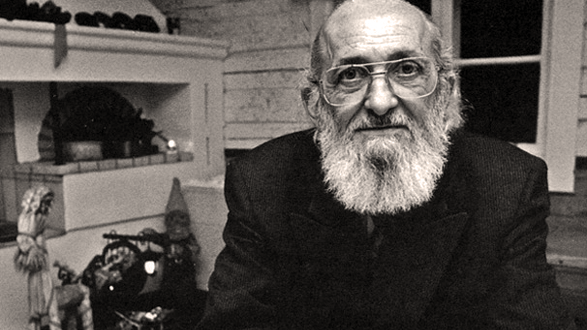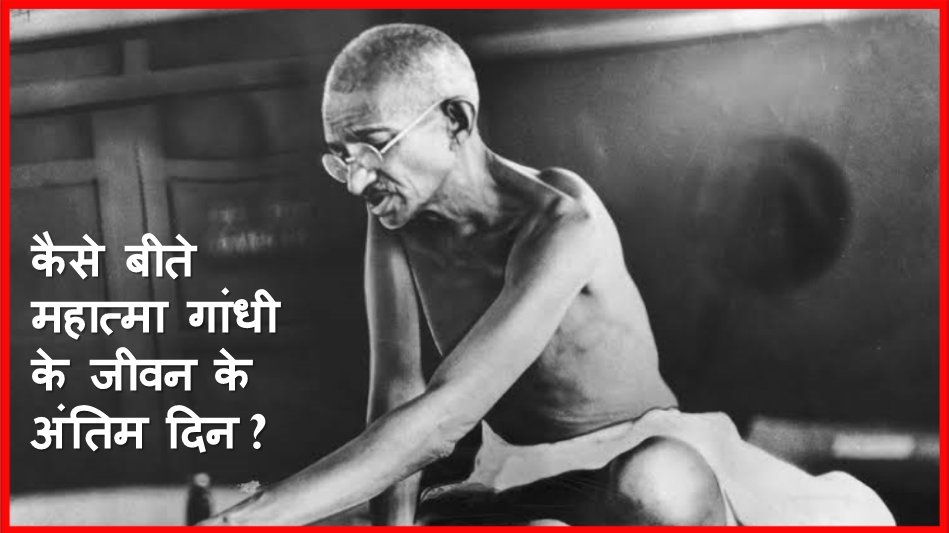By Mudita Pant and Deendyal Singh
Philosophers like Paulo Freire, John Dewey and Mahatma Gandhi made an impact on the educational system through their theories. While Friere introduced pedagogy of the oppressed, Dewey favored education through experience and Gandhi focused on craft based education. Education in today’s world tends to be very dynamic and flexible in the sense that it can be shaped and changed according to the needs of the learner and therefore no one theory can be applied to suit the demands of the students. Hence, it becomes extremely important to keep in mind the various ideas propounded by these different ideologies and to use them as and when the need arises.
Education is the building block of the life of an individual as it enables the person to participate positively in developing him/herself and contribute to the nation. It provides a strong foundation upon which people learn the ideals of citizenship, democracy, fraternity, equality among others. Education has always been a theme of discussion in science, psychology, philosophy etc. and these discussion have led to different kinds of state policies catering to different kinds of education systems.A wide range of thinkers have discussed on the theme of eduction in great depth. Among the thinkers who have discussed on education in great depth are people like Gandhi, Dewey, Freire, Krishnamurthy, Tagore etc. This article will focus on the educational discourse offered by three philosophers: Gandhi, Dewey and Freire.
The Agency of Children
The idea of the agency of children is very different in the three authors. Freire focused on education of the children through the process of problem posing education and gave emphasis on dialogue. According to him, dialogue is the process through which the teachers coming from different backgrounds/experiential milieus and children coming from different backgrounds come together and engage in positive dialogue. Freire did not support banking model of education which was based on the belief that students know nothing. (Freire, 1968) Dewey on the other hand focused on providing education through experience. He believed in education as a process. His idea was that education should be progressive but should not lack structure and should take some ideas from traditional form of education. According to him, progressive education was accepted more by the people because it was in accordance to the democratic ideals and that its methods were more humane in comparison to traditional education. However, he did not target any community in his theory of education. (Dewey, 1938) Gandhi focused his theory on the education of children in the age group of 7-14 years. His primary focus was on educating the children through some kind of craft not only to make education self-sufficient but also to ensure self-employment to children after they complete their education. His primary focus was on education of the children in villages. (Sykes, 1988).
Target Society
The three philosophers focused on different sections of the society. Paulo Freire focused on the oppressed section of the society as he believed that they need to be liberated and humanised from the oppression of the oppressors. He emphasised on the fact that there should not be one section of society (oppressor) which has access to everything at the expense of the other (oppressed). Therefore, he started advocating the idea of liberalisation and humanisation through education. (Freire, 1968) Dewey’s idea of education was through experience, however, he did not specify any target society for his idea of education and therefore it can be assumed that his theory was open to every community(Dewey, 1938). Gandhi’s target societies were the downtrodden sections, also known in the Indian society as untouchables or Harijans (by Gandhi himself) (Sykes, 1988).

Ideas of Education
The ideas of education of these authors are quite different. Paulo Freire’s idea of education was pedagogy of oppressed. In it he focused on humanisation of those who were oppressed into doing various tasks for the oppressor. (Freire, 1968) Dewey’s idea of education was to find a balance between traditional and progressive education, that is, he wanted the education to be progressive which should have some structure derived from traditional education. He also emphasised on the fact that educators should always look into the type of experience their students have had. (Dewey, 1938) Gandhi on the other hand, focused on education through the mother tongue. He also emphasised that teachers and students should work together and teachers should not give any task to the students which they themselves won’t do. (Sykes, 1988)
Significance of experience in Learning
Experience in learning was something which was advocated by John Dewey. He believed that experiences help children learn better. He however was of the view that not all experiences were educative. Here, it can be pointed out that there was no particular method given which could help the educator differentiate between experiences which were educative from those which were non-educative. (Dewey, 1938) Gandhi also believed in experiential learning. According to him, children learned better through their eyes that through their ears and therefore, he decided to base his education on some form of crafts so as to engage the children as well to help them to make the schools self-sufficient. (Sykes, 1988). The stand of Paulo Freire is not very clear on experiential learning through the readings. However, it may be inferred that he did took into account the importance of experience in education as he emphasized on dialogue, which was essentially the various experiences of the teachers and the students. (Freire, 1968)
Education and Freedom
Paulo Freire believed in the system of education, which would help in the liberation of both the oppressor and the oppressed. He was of the opinion that only the oppressed could liberate themselves and their oppressor and help them in humanizing. On the basis of this idea, he formulated the pedagogy of the oppressed. (Freire, 1968) Gandhi also believed in education to be a source of freedom. According to him, education can be used for transmitting the ideas of cultural heritage which would eventually help the people to internalize the idea of citizenship and help in the attainment of freedom, not only from the British, but also from the shackles of illiteracy. (Sykes, 1988). Dewey’s ideas of education and freedom are not very clear, but it can be inferred that he too supported freedom through education because he laid emphasis on different experiences to be brought into education which could help in attainment of freedom. (Dewey, 1938)
Organization of Subject Matter
Subject matter was something which can be found in Gandhi’s theory of education. He laid stress on education through experience so much so that there were literally no text books in his school. He believed that good subject material can transform the lives of the children. Further he was of the opinion that education should be in mother tongue so that the children understand what is being taught and can express themselves clearly. He laid special emphasis on neat and tidy handwriting of the students. The subject taught in his school included language, history, geography, arithmetic, GK and many others. (Sykes, 1988). Paulo Freire as well as John Dewey did not specify the subjects to be taught however it can drawn-out from their writings that they wanted their subject matter to be such that it can help the students to participate in education actively through dialogue and problem solving education and to engage themselves to learning through experience(Freire, 1968) (Dewey, 1938).
Points of Similarities and Differences Amongst the Three Philosophers
From the discussion held above we can certainly find some similarities and differences amongst the three philosophers. The most common point of similarity is that all of them supported some form of mass education and saw it as a way towards freedom. They also emphasized on the fact that both the teacher and the student should engage together in the process of learning. However one stark difference which can be derived is the type of theory they propounded. While Freire focused his theory on liberating and humanizing the oppressed, Dewey focused on proving education through experience and progressive education based on the some structure which can be derived from the traditional form of education. Gandhi’s educational theory focused on education through craft, mother tongue and experience. His basic aim was to make primary education compulsory for children so that they can become independent and start earning after completing their schooling. His other aim was to make schools self-sufficient.
Views on Compulsory Education
Gandhi was in favour of compulsory primary education for children in the age group of 7-14 years. According to him children should have the opportunity to receive formal education so that after completing their education they can engage themselves in employment. Freire’s idea of education was inclined towards liberating the oppressed section of the society through education. However, it is difficult to infer from the reading whether he was in favour of compulsory education or not. But it may be assumed that he realised the importance of it as he mentioned that only the oppressed can liberate themselves and their oppressor, and this can only be done through education of both the oppressor and the oppressed. Dewey’s idea of education was through experience, based on some structure. However, it cannot be derived from the reading whether or not he was in favour of compulsory education.
Education was conceptualised by different people at different times. Dewey’s idea of education was based on educative experience and continuance of that experience to ensure that the students keep on receiving education. It is interesting to note that Dewey’s idea of education may or may not be applicable in Indian context in the sense that there are numerous schools which are opening as progressive; however it becomes essential to evaluate such schools in terms of principles laid down by Dewey(Dewey, 1938).
The Gandhian idea of education was that of craft based primary education to make schools self-sufficient. This form of education seems very attractive and promising but we have to see how it can it implemented at the grass root level, considering the huge socio cultural and economic inequalities in the villages.
However, In the present educational system, new policies have been introduced by the government of India in the form of Right to Education, Sarva Shiksha Abhiyan, National Education Policy among others which ensure quality education to all children. Freire’s idea of education was based on the liberation of the oppressed and their humanisation through problem solving education and therefore it was known as the pedagogy of the oppressed. Freire’s idea may be more applicable in the Indian context as there are a large number of people who still do not have proper access to necessities of life and can said to be oppressed. Dalits for example form the largest group of people who face discrimination and oppression in their daily lives and are amongst the most oppressed communities in India. The application of Freire’s idea of education may help them come into the mainstream line of living with dignit. (Freire, 1968).
References:
Dewey, J. (1938). Experience and education. New York: Macmillan.
Freire, P. (1968). Pedagogy of the oppressed. New York: Seabury Press.
Sykes, M. (1988). The story of Nai Talim: Fifty years of education at Sevagram, 1937-1987: a record of reflections. Sevagram, Wardha: Nai Talim Samiti.
Mudita Pant, Master student at School of Education, TISS Mumbai and Deendyal Singh is a Research Scholar at TISS Mumbai.









